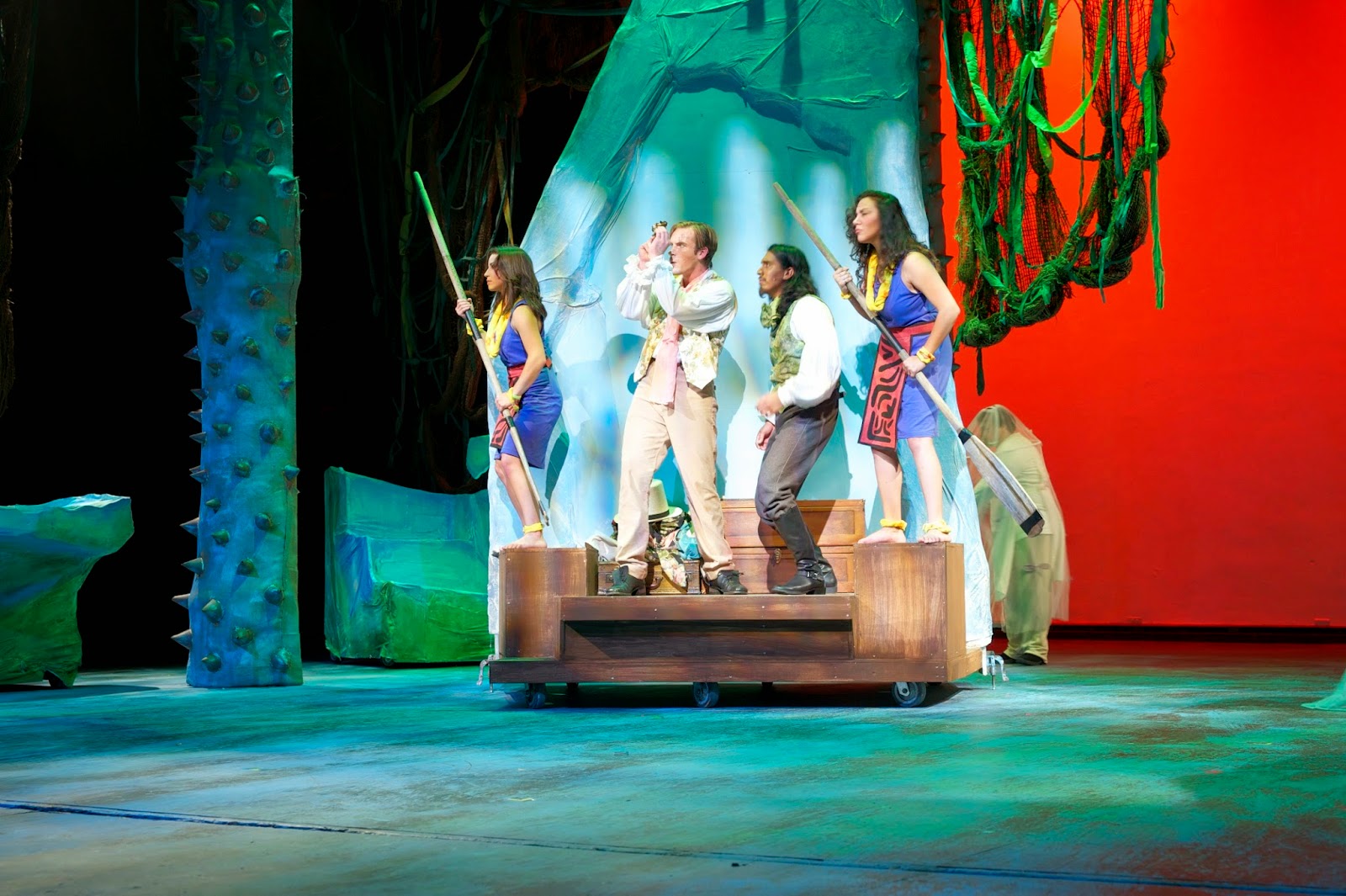Like many British actors--particularly of his generation and before--Peter O'Toole was a star on the stage before he made his first film. His Hamlet, using the full text (which is rare), was much praised.
Richard Griffiths was primarily known as Uncle Vernon in the Harry Potter films, but he was mostly a stage actor, costarring recently with Harry himself, Daniel Radcliffe.
American actor Julie Harris was renowned as much for her stage work as for her movies, though her performance in East of Eden opposite James Dean is indelible. Other American actors known primarily for film and television are Eileen Brennan, Jean Stapleton, Eleanor Parker, Deanna Durbin and Esther Williams. Lesser known American actors whose loss will be felt on stages are Ruth Maleczech, Martha Greenhouse, Kevin Gray, Patricia Blair, Jane Connell. American stages also lost director and actor Arthur Storch, and director and author Herbert Blau.
British actors lost this year also include Lewis Collins, Jean Kent, Paul Rogers, Nigel Davenport, Pat Keen, Barbara Hicks, Bill Wallis, David Lyon and Keith March. Canadian, South American, European and Asian stages lost important figures as well.
Nobel Laureate Seamus Heany was a playwright as well as poet, and Nobel Laureate Doris Lessing wrote plays and libreti for opera as well as fiction and essays. She was also a keen theatre-goer.
Poland lost one of its foremost international playwrights, Slawomir Mrozek. Franca Rane was a prominent Italian playwright and actor. Ostad Mohammad was a playwright and director. Walter Muparutsa was an important playwright and actor in Zimbabwe.
Cuban-born Dolores Prida was known primarily as a columnist for the New York Daily News but also found success as an Off-Broadway playwright. Pittsburgh lost an important playwright in its vibrant theatre scene with the death of Mary Virginia Whipple. Donald Bevan began as a Broadway playwright and later became a Broadway caricaturist. Playwright John Davidson also founded the Children's Theatre. A former reporter, Thomas Tafero was a young playwright and actor in New York.
Many of these playwrights were also actors, directors, producers and teachers. But their focus remained foremost on theatre and film. There are others however who include the stage in an even larger scope of endeavors. Philip Slater had that kind of life. Known primarily as the author of nonfiction books such as The Pursuit of Loneliness, or the fiction/nonfiction hybrid Earthwalk, his livelihood was provided mostly by university teaching. Yet he also had a life as an actor and playwright. While his death at age 86 is to be mourned, his books remain alive, and his plays exist to be brought to life by future generations. It seems like an honorable and fulfilling life.
Update 1/4/2014: Here's what playwright and actor Alan Bennett wrote about the death of Richard Griffiths in journal excerpts from 2013 just published (and posted) in the London Review of Books. Bennett wrote the play and screenplay The History Boys, one of Griffiths' better known performances. He won many awards for his performance in it on stage, including a Tony.
29 March. Richard Griffiths dies. We’ve been away for a couple of days so are spared the unctuous telephone calls that always come from the tabloids on such occasions, ‘We’re sorry to be the bearer of bad tidings’ or ‘We hope we’re not intruding on your grief.’ Outside his family the person who would have known him best as an actor at the National and who would have been most acquainted with the logistic difficulties caused by his bulk was his dresser. No one will think to ask him, and I’ve never known him gossip about the actors he’s dressed (myself included), but he would have an angle on Richard and how he coped with his life that is unshared by any of the obituary writers.
Richard had an unending repertoire of anecdotes and an enviable spontaneous wit besides. I was working with him at the time when Henry VIII’s flagship the Mary Rose was being laboriously raised from the depths of the Solent. This was being done by means of a cradle when suddenly a cable snapped and the wreck slipped back into the water.
‘Ah,’ said Richard. ‘A slight hiccup on the atypical journey from grave to cradle.’
Here's a story on Griffith's funeral, which brought out the Brit acting elite, including Daniel Radcliffe.





